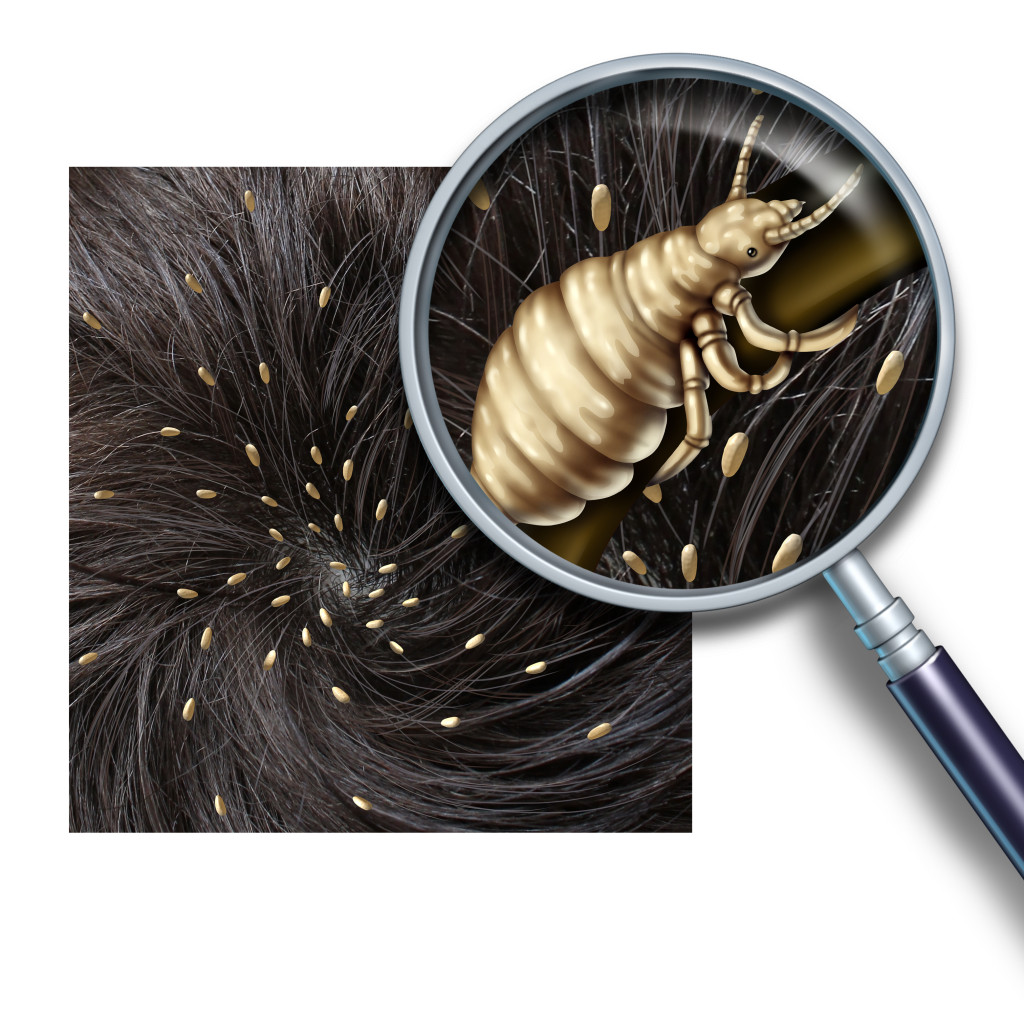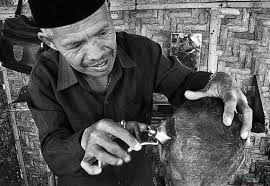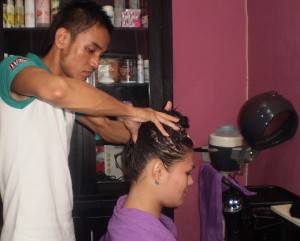|
Long before modern salons invaded all but the most remote villages of Indonesia, long before shampoo ads blared out from television sets across the archipelago, long before creambaths and hair dyes and blow dryers became popular with the middle classes, Indonesians had a culture of caring for their hair. In the afternoons, when the heat of the sun has eased and the workday is done, a common sight across the country is rows of women sitting back to front, their fingers entwined in each others’ tresses. In Javanese this practice is called petan and in Balinese makutu, but whatever the language it means the same thing: looking for lice. Lice pay no mind to social status, freely jumping from the heads of the rich to the heads of the poor and back again. Despite this biological fact, the upper classes now tend to see louse-hunting as a rather tacky pursuit. But it’s still a popular pastime among market traders or housemaids, who while away leisurely hours delousing their friends. Fans of the practice say it’s not only good for one’s hair, ridding it of itchy and unsightly creatures, it’s also useful for relieving stress and boredom, with the thrill of the hunt helping one to forget one’s troubles. A friend once explained delousing as a case of “crush one and a thousand more will grow.” This is because each female louse lays an average of six eggs a day. The eggs adhere to the hair shaft for a week, then break open to release even more lice. With such a rate of reproduction, lice provide almost endless prey for the hunter. “Usually I look for lice with my friends in the village each afternoon. We start at around one and stop at around four. The important thing is that we’ve already finished our housework. We’re not allowed to look for lice in the mornings. The old folks say, if you get too enthusiastic about lice then you won’t work and the village headman will get richer and you’ll just get poorer,” explains Titin, a young resident of Ngalang-alang Sari village in Java’s Wonosari region. Besides functioning as a traditional salon, the delousing session also becomes an arena for women to communicate. As they walk their fingers across each others’ scalps, looking for tell-tale signs of lice and their eggs and pinching off their catch between their fingers, women converse and spread gossip around the neighborhood. “It’s really nice, you know,” says Titin. “In the afternoons we chat, and you get your head rubbed until you feel sleepy. Sometimes even if I don’t have any more lice, I still want someone to look for them.” Delousing can in fact become an addictive pleasure, satisfying cravings for conviviality, relaxation, and a bit of attention—the same reasons that send any woman to a salon. It may not be the most glamorous of beauty treatments, but it’s honest, healthy—and free. First published in Latitudes Magazine |

Previous Post
A Chinese temple in Dili, East Timor
Next Post
She came into the world deformed and unwanted













